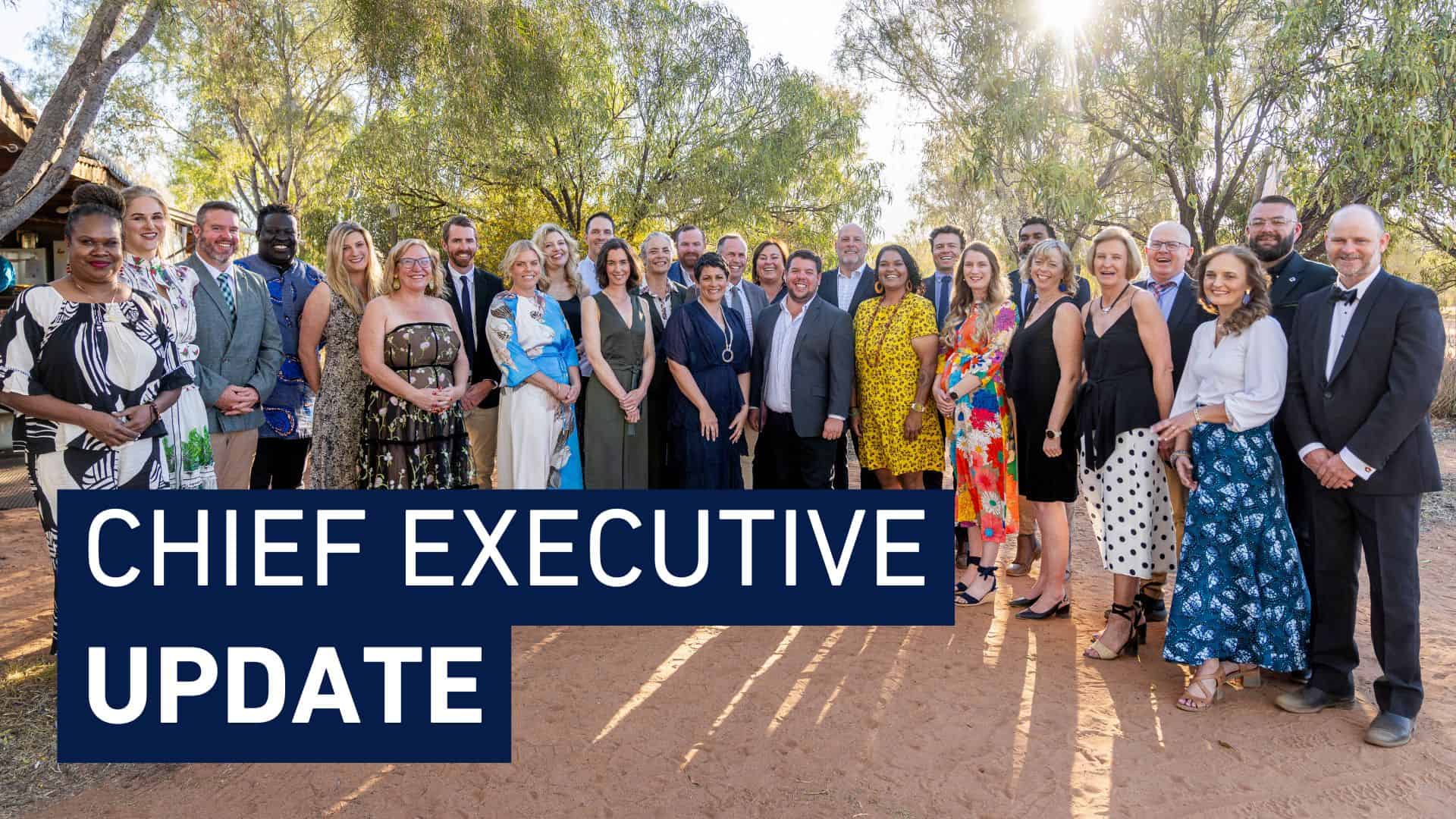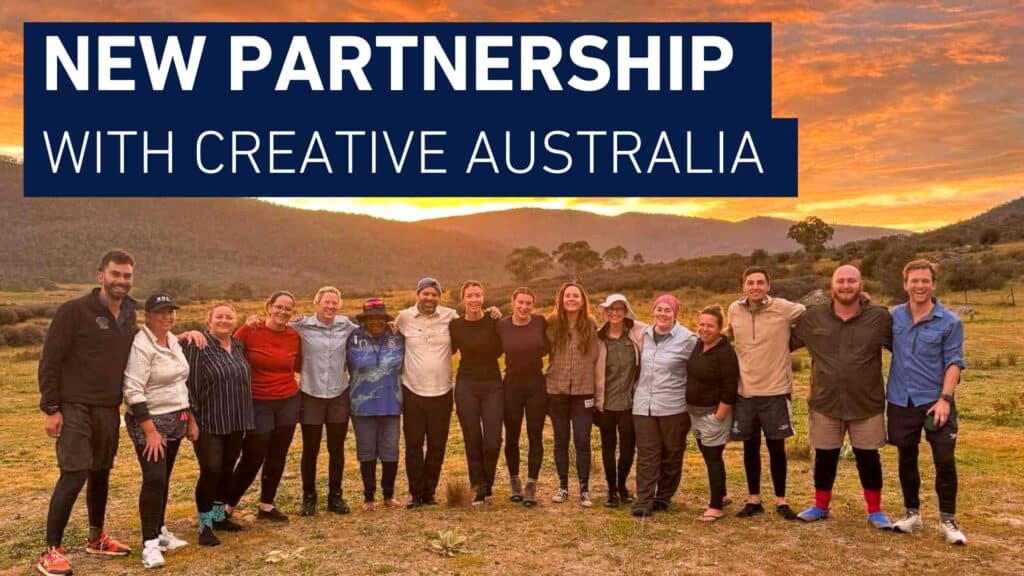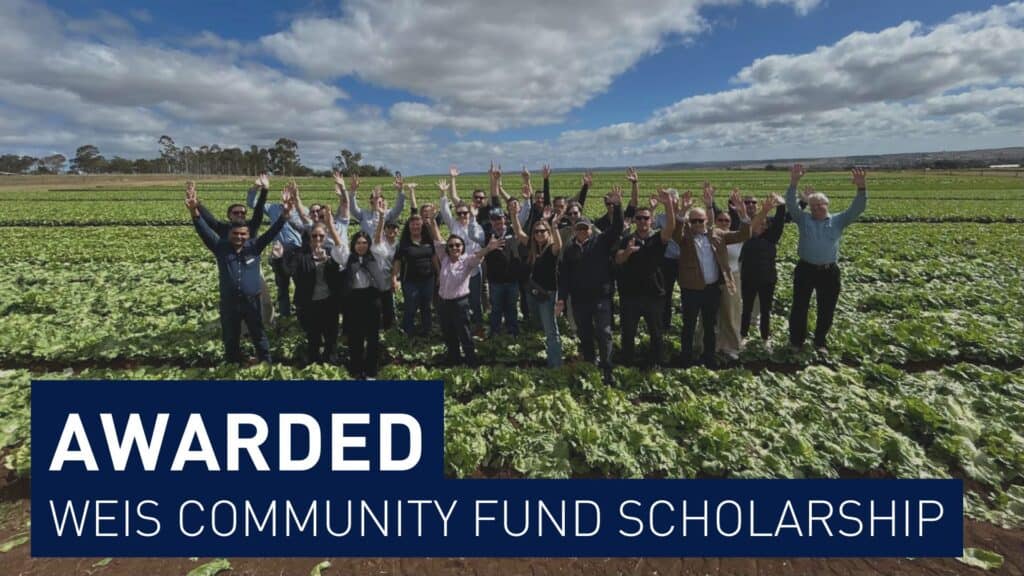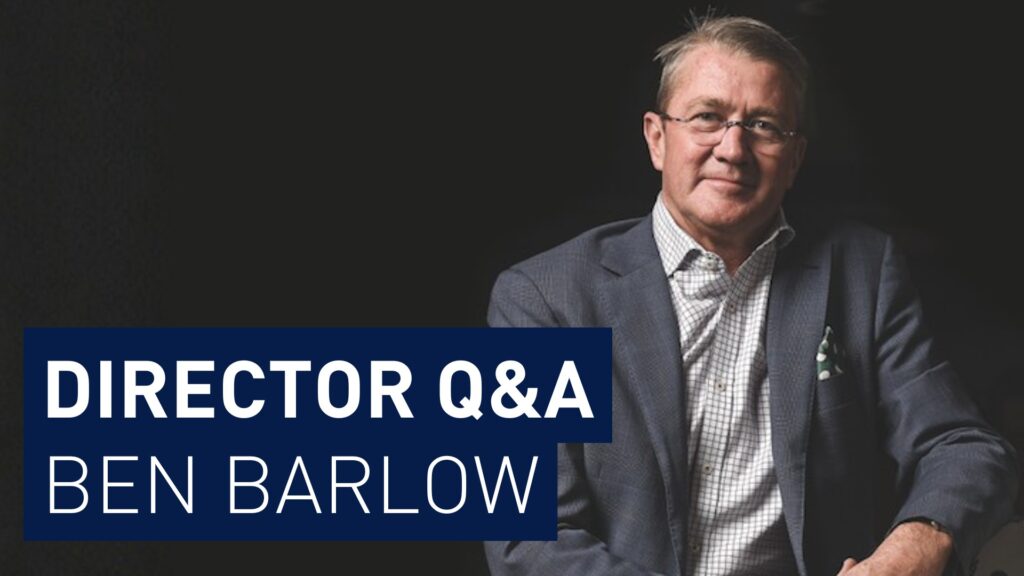Last week, under a sky full of stars just outside Alice Springs on Arrernte Country, 28 people marked the end of something special. For 15 months, they had travelled across Australia together. Through bush landscapes, cities and small towns, meeting people whose lives were completely different from their own. They had pushed themselves hard, asked difficult questions, and grown in ways they hadn’t expected.
This was the graduation ceremony for Course 31 of the Australian Rural Leadership Program, and it felt more like a family gathering than a formal event.
The venue was simple red dirt beneath their feet, fairy lights strung overhead, and stories flowing between the graduates, their families, mentors, sponsors and friends. Each person received a small pin and became part of something larger: a network of leaders who live to serve rural, regional and remote Australia.
But this wasn’t just about finishing a course. These people had changed, and you could see it in how they carried themselves, changes in their own behaviour, and how they thought about their place in the world.
The evening raised almost $3,000 for Donna Digby’s Territory Connect scholarship fund, with one person paying $350 for a tin of homemade Anzac biscuits all to help bring more Northern Territory voices into future programs. It was typical of what these leaders had become: generous, practical, and focused on others.
What they discovered about leading others
Many of the participants started the program thinking leadership was something you earned, a title on your business card, a corner office, or formal authority over other people. The program turned this idea on its head.
They learnt that leadership is something you do, not something you are. It’s about service and influence, not control. Real leaders create space for others to step up and contribute. You don’t need anyone’s permission to start leading you just need to pay attention to what’s needed, find your courage, and work with others to take action.
One participant put it perfectly: You don’t wait for someone to make you the boss. You start by cooking dinner when everyone’s too exhausted to think straight.
Learning to know yourself first
The ARLP doesn’t work like most leadership courses. Instead of teaching theories or giving you a handbook, it strips away your assumptions and pushes you to your limits mentally, emotionally, and physically. Then it asks you to think deeply about what happened and how you might approach thing differently next time.
This process is uncomfortable, but it reveals things about yourself that you couldn’t see before. Some people discovered they suffered from imposter syndrome. Others realised they jumped in with advice too quickly instead of listening first. The program created a safe space to make these mistakes, learn from them and start to shift behaviours.
Through honest feedback from peers and deep reflection, participants learned to lead with genuine confidence rather than bravado. They discovered how to be authentic without putting on a performance.
The strength in being vulnerable
One of the biggest surprises for many participants was learning that vulnerability and deep listening aren’t weaknesses, they’re some of the most powerful tools a leader can have.
Early in the program, during a session in Kangaroo Valley, something shifted. People began sharing their real stories not the polished versions they usually told, but the messy, honest accounts of their failures and fears. Instead of judgment, they found support and understanding.
This created a different kind of trust, one that went much deeper than professional respect. They realised that truly listening to someone can break down barriers, include people who usually stay quiet, and turn a group of individuals into a real team.
From personal success to shared achievement
By the end of the program, participants understood that leadership isn’t about being the hero of your own story. It’s about building something bigger than yourself, something that will last after you’ve moved on.
Working alongside First Nations communities and people from completely different backgrounds, they saw the power of designing solutions together rather than imposing them from above. They learned that everyone has a story worth hearing and wisdom worth sharing.
One question followed them throughout the program: What is the impact you want to have, with whom and for who?
This question stayed with them as they prepared to return home, not just as better managers, but as more adaptable, collaborative, and genuinely human leaders.
Why this matters for rural Australia
In the spreadsheets and budget reports that govern rural, regional and remote Australia, leadership often doesn’t appear as a line item. You can’t measure it like kilometres of road or hospital beds, but its impact ripples through everything else.
We invest heavily in infrastructure, healthcare, and economic development, and rightly so. But what if the most lasting change comes not from what we build, but from the people we support to become better leaders?
The ARLP rests on this simple belief: people are the most powerful tool for long-term and systemic change. Give them the right support and experiences, and they’ll carry that change into their communities, workplaces, and industries.
This work only happens because of sponsors who understand that investing in leadership is a multiplier. They see potential in people and back them to grow into it. Every graduate spoke with genuine gratitude about this faith in their ability to lead differently, better and with others.
Their commitment was clear: to grow from what they’d learned, to share it with others, and to honour the investment by leading with purpose rather than just position.
Good leadership turns problems into opportunities, builds bridges between different groups, and helps people work together towards shared goals. Supporting programs like this doesn’t just fund a course, it gives entire regions and sectors the tools, confidence, and connections they need to shape their own future.
To everyone who supported these 28 leaders, thank you. Your investment in people is building a stronger, more connected, and more resilient rural Australia. We’re all grateful for your faith in what’s possible when people are given the chance to grow.
Congratulations to Course 31 of the Australian Rural Leadership Program
| Anna Playfair-Hannay |
| Barbara Ibuai |
| Candace Vea Vea |
| Cassandra Walker |
| Cherisse Buzzacott |
| Chloe Lollback |
| Cressida Cains |
| Dean Sutton |
| Fiona Marshall |
| Gordon McNeil |
| Greg Zillman |
| Hannah Mann |
| Hassim Adidi |
| Jye Forrester |
| Kalair McArthur |
| Ken Dachi |
| Kirsten Diprose |
| Linda McSherry |
| Matt Norton |
| Nicholas Blandford |
| Nick Haddow |
| Nicole Walsh |
| Sam Lee |
| Sam White |
| Selena Sylvester |
| Stephanie Wurst |
| Tim Ford |
| Zachary Gonzales |





